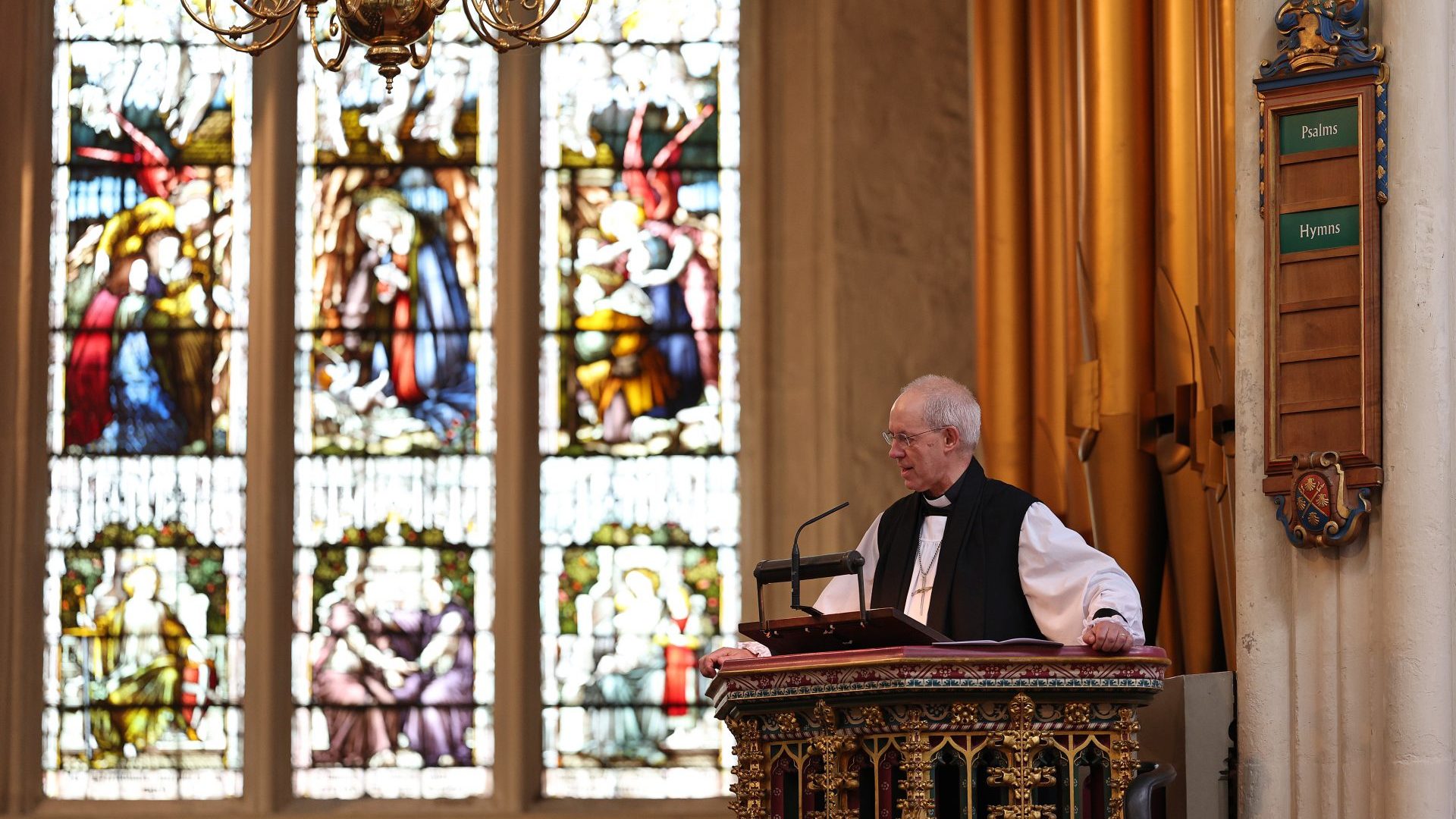It is perhaps part of the job of the Archbishop of Canterbury to believe in miracles, but after a week of pressure – in the wake of the publication of a report into the church’s role covering up horrific child abuse by barrister John Smyth – it was clear no divine intervention was going to save Justin Welby’s career.
On Tuesday, he resigned, creating a vacancy at the helm of the worldwide Anglican Communion of some 85 million worshippers, as well as the Church of England. He may also have created no end of political headaches for the church – and for Keir Starmer – in choosing his successor.
The Church of England is battling to stay relevant to the country of which it is still the established religion – which brings with it many ceremonial roles, as well as places in the House of Lords for 26 of its bishops. Weekly church attendance has halved in the last decade to just 600,000 a week, less than 1% of the UK’s population.
The church is trying to move with the times, having – unlike the Catholic church – ordained women priests (some of whom are now bishops) and eking out painful compromises such as permitting vicars who are openly gay, provided they solemnly pledge that they are chaste. These matters remain highly contentious inside the church, even if they are largely uncontentious in modern Britain.
There are pressures towards liberalisation, simply to keep the Church of England relevant to its home country – but the broader Anglican communion includes many far more conservative Christian communities across Africa who believe the Anglican communion is far too liberal already.
Trying to hold together an increasingly fractious and polarised communion has been Welby’s main task for the last decade, and he is broadly seen as having just about managed the almost impossible task. Every word of every speech is carefully measured to balance off different factions, and change happens only at a glacial pace.
Now the church must choose the next person to take on that mantle, and the process inevitably draws in the government too. Keir Starmer is responsible for picking the chair of the committee that selects the next Archbishop, and then the committee is made up largely of members of the English church (and Canterbury officials), but with a crucial few seats for overseas communions.
Starmer is then presented with a shortlist of two candidates, from which he is supposed to pick the first candidate, who is the committee’s favourite. No prime minister has overridden that choice to pick the second in modern British politics since Margaret Thatcher appointed George Carey over the church’s preferred pick.
Traditionally, the role alternates between the evangelical wing of the church and the Anglo-Catholics, whose ‘turn’ it is next. But the Anglo-Catholics are broadly the more liberal wing, and so there may be a breakdown in the traditional ‘deal’, not least because many conservative commentators pushed for Welby’s removal in a way some in the church suspect was more because they wanted a new Archbishop than they sincerely believed his personal culpability for the abuse scandal merited it (opinions on this are extremely divided, and heated).
Several of the bishops who might be expected to be serious candidates for the job may be disqualified by timing: this is not a good time to be seen as a protégé of Welby, or to have question marks over your own involvement in the Smyth scandal or other safeguarding issues.
Others may be disqualified by gender: within England, a first female Archbishop of Canterbury might be a visible sign of a modern church, but it would enrage the wider Communion’s conservatives who still baulk even at male bishops who were willing to ordain women. It may also embarrass Starmer if the Church of England has its first female leader before the Labour Party manages that feat.
Helen-Ann Hartley, the Bishop of Newcastle, was likely one of the strongest female contenders for the post, but likely disqualified herself by breaking ranks early and pushing for Welby’s removal. She who wields the knife shall never wear the mitre, and all that.
The obvious successor for Welby is probably Stephen Cottrell, the Archbishop of York. He is liberal – most serious contenders for the role are, to the likely chagrin of the commentators who unseated Welby – but not drastically so. He has experience running a large and complex diocese. He’s an Anglo-Catholic, and he’s not personally tainted by the Smyth scandal.
But the Archbishop of York always enters the succession race as the favourite, and nowadays almost never actually gets the job – and Cottrell is a stronger favourite than most, so by that perverse logic is perhaps doomed.
The church is looking for a candidate who can answer two questions: who can hold the Anglican Communion together, and who can keep the Church of England relevant to modern Britain? It may find that there is no right answer, and eventually despite all its best efforts, something will have to give.











